|
||
      |
Letters: I virtually lived off of the UChicago e-mail system...
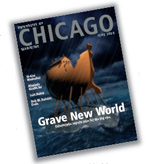 What’s truly catastrophic
What’s truly catastrophic
I am shocked and disappointed to see in Lydialyle Gibson’s “The Big One” (June/06) the preposterous notion that a particle accelerator (Fermilab?) might produce a strangelet that would crush the Earth “into a sphere about 100 meters across” given comparable credibility with earthquakes, pandemics, and volcanoes—and with global warming, which, like the hole in the ozone layer, is already an on-going catastrophe. To write, “The chance that any of these scenarios might occur remains minute, Posner concedes, but not negligible, and people should not dismiss them,” is to trivialize the real threats that we can avert by jumbling them with low specific probability, but real, threats, like asteroid strikes, that we cannot avert, and bogus alarms, like strangelet crushing, that would require violating laws of thermodynamics. In 2006 to write, “Reports…have convinced many people that global warming (the slow kind, anyway) is real,” is to suggest that some Chicago-educated people still hold reasonable doubts re this fact...
We are vastly better advised to support Warren Paul’s efforts to strengthen the levees that keep saltwater out of California’s Central Valley, but if global warming is allowed to continue unabated it is unlikely that any practical effort will suffice as sea levels rise more than 200 feet as the Antarctic ice melts.
I hope that Prof. Pierrehumbert was quoted out of context when he said of global warming, “Twenty years ago, no scientist would say observations coming out of the noise level were detectable.” I was taught at Chicago (1965) that global warming was a certain, eventual consequence of burning fossil fuels and read that Rudolph Diesel had warned of this in 1906. However noisy the weather and biological systems may be, the physics is clear. There was uncertainty when and exactly how the catastrophe would manifest itself but no doubt that if humans continued to release greenhouse gas-ses into the atmosphere it would appear, as Pierrehumbert agrees it now clearly has.
Re the predictability of the destruction of New Orleans, at the 1997 Teraflop Conference held there and at LSU, all the local physicists and engineers I met told of the devastation that would occur if the levees were not strengthened. Erikson should not be surprised “there’s not a single person in New Orleans who thinks that this was a natural disaster.” All educated persons should know it to be the anticipated consequence of Bush stopping levee maintenance (2001) and continuing the unrestrained burning of fossil fuels.
James A. Van Vechten, SM’66, PhD’69
Corvallis, Oregon
E-mailing it in
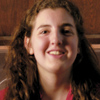 I very much enjoyed Abby Seiff’s piece on her love affair with UChicago
listhosts (“Serv it up,” June/06). I virtually lived off of
the UChicago e-mail system and don’t know what I would have done
without it (NSIT’s notice to me that my account was being taken down
was quite a blow). I was once asked by one of my friends if I’d give
up e-mail for a year, while still having access to other forms of communication
(such as my cell phone), in return for a million dollars. The question
was a no-brainer for everyone in the room, except that I was the only one
who chose e-mail. Good to hear that there might be more of us!
I very much enjoyed Abby Seiff’s piece on her love affair with UChicago
listhosts (“Serv it up,” June/06). I virtually lived off of
the UChicago e-mail system and don’t know what I would have done
without it (NSIT’s notice to me that my account was being taken down
was quite a blow). I was once asked by one of my friends if I’d give
up e-mail for a year, while still having access to other forms of communication
(such as my cell phone), in return for a million dollars. The question
was a no-brainer for everyone in the room, except that I was the only one
who chose e-mail. Good to hear that there might be more of us!
Murtaza Akhter, AB’05
Westmont, Illinois
Latinos and academe
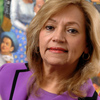 I enjoyed the article on Aida
Luz Maisonet Giachello in the June/06 issue
(“Dos tortillas por día”). I am a Latino graduate student
and study diabetes from a community perspective (in El Paso, Texas) and
was encouraged to read such a positive study about a Latina academic who
is in tune with her community. We need more researchers like her to understand
how Mexican Americans live and who can say in a joking yet reassuring manner, “Dos
tortillas por día!” Keep up the good work, and please print
more articles about Latinos and Latinas in academia.
I enjoyed the article on Aida
Luz Maisonet Giachello in the June/06 issue
(“Dos tortillas por día”). I am a Latino graduate student
and study diabetes from a community perspective (in El Paso, Texas) and
was encouraged to read such a positive study about a Latina academic who
is in tune with her community. We need more researchers like her to understand
how Mexican Americans live and who can say in a joking yet reassuring manner, “Dos
tortillas por día!” Keep up the good work, and please print
more articles about Latinos and Latinas in academia.
Sean P. Bruna, AB’99, AM’03
Albuquerque, New Mexico
More, not less
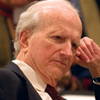 The article “Rational
Choice” (“Chicago Journal,” June/06)
scratched the surface of what on July 1 became the Becker Center on Chicago
Price Theory, i.e., its research focuses on the crucial role of markets
and incentives in all aspects of modern life. The April 7–8 inaugural
conference on the Initiative on Chicago Price Theory, in which Gary Becker
was honored and participated, listed a wide range of questions that were
covered.
The article “Rational
Choice” (“Chicago Journal,” June/06)
scratched the surface of what on July 1 became the Becker Center on Chicago
Price Theory, i.e., its research focuses on the crucial role of markets
and incentives in all aspects of modern life. The April 7–8 inaugural
conference on the Initiative on Chicago Price Theory, in which Gary Becker
was honored and participated, listed a wide range of questions that were
covered.
At least for me, it would have been of interest to be provided some indication of significant findings in which this point of view has led to rather broadly recognized significant successes in the past. As Becker himself was quoted: “It will be judged on how well it helps us understand the world—and how it helps to improve it.”
In this same issue, it was reported that economist Lars Peter Hansen won the 2006 Erwin Plein Nemmers Prize ($150,000) for his work relating economic theory to macro-economic and asset-market (price) behavior. As a self-appointed 35-year student of stock-market pricing behavior over longer periods of time, it would have been especially interesting for me to learn (even if just briefly) what he discovered.
Bill Gray, PhB’48, MBA’50
Burr Ridge, Illinois
Less would have been more
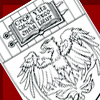 In the short article “The ‘Israel
Lobby’ Debate” (“Chicago
Journal,” June/06) Magazine editor Mary Ruth Yoe claims the authors’ note
shows that they knew that the paper would be controversial. First of all,
that note wasn’t written by the authors [John J. Mearsheimer and
Stephen M. Walt]. It’s a standard note appearing on all Kennedy School
papers. Secondly, once the Kennedy School realized that there were problems
with the paper, they took the unprecedented step of changing that note.
The dean wrote, “[T]he school strengthened its disclaimer and removed
the logo from the cover page to clarify that this was not an official Kennedy
School document.” (Letter to members of the Kennedy School community,
31 March 2006; David D. Ellwood, Dean, published in “Stephen Walt,
The ‘Israel Lobby’ Paper, and Academic Freedom,” Steven
C. Clemons, thewashingtonnote.com.) The new note reads, “The views
expressed in the KSG Faculty Research Working Paper Series are those of
the author(s) and do not necessarily reflect those of the John F. Kennedy
School of Government or Harvard University. All works posted here are owned
and copyrighted by the author(s). Papers may be downloaded for personal
use only.” The fact that Harvard has completely disassociated itself
from this paper speaks volumes, as does that fact that Prof. Walt is stepping
down as academic dean so soon after publication of this paper.
In the short article “The ‘Israel
Lobby’ Debate” (“Chicago
Journal,” June/06) Magazine editor Mary Ruth Yoe claims the authors’ note
shows that they knew that the paper would be controversial. First of all,
that note wasn’t written by the authors [John J. Mearsheimer and
Stephen M. Walt]. It’s a standard note appearing on all Kennedy School
papers. Secondly, once the Kennedy School realized that there were problems
with the paper, they took the unprecedented step of changing that note.
The dean wrote, “[T]he school strengthened its disclaimer and removed
the logo from the cover page to clarify that this was not an official Kennedy
School document.” (Letter to members of the Kennedy School community,
31 March 2006; David D. Ellwood, Dean, published in “Stephen Walt,
The ‘Israel Lobby’ Paper, and Academic Freedom,” Steven
C. Clemons, thewashingtonnote.com.) The new note reads, “The views
expressed in the KSG Faculty Research Working Paper Series are those of
the author(s) and do not necessarily reflect those of the John F. Kennedy
School of Government or Harvard University. All works posted here are owned
and copyrighted by the author(s). Papers may be downloaded for personal
use only.” The fact that Harvard has completely disassociated itself
from this paper speaks volumes, as does that fact that Prof. Walt is stepping
down as academic dean so soon after publication of this paper.
The Kennedy School did not, as Ms. Yoe claims, invite Harvard faculty to post responses. In fact, Prof. Dershowitz’s comments are also completely unprecedented. Again, quoting from Dean Ellwood’s letter, “Recently Alan Dershowitz of the Harvard Law School sent a request we had never received before. He had written a direct response to the paper and wished the courtesy of having it posted on our [W]eb site as well....Thus under appropriate circumstances, I have agreed to let faculty from other schools at Harvard post responses to any Kennedy School faculty working paper.”
Of all the opinions available, I note that Ms. Yoe chose the views of Daniel Levy, author of “The Geneva Initiative,” an unofficial document, drafted together with Palestinian ex-officials, which has been widely disregarded by all parties as it calls for Israel’s total destruction in slow and painful stages. His publication in a major Israeli daily notwithstanding, his opinion is not a fair sample of pro-Israeli thought.
Academic freedom is inviolable. However, given the fact that so many serious critics have attacked the paper purely on the basis of its shoddy scholarship, Ms. Yoe probably would have done better not to have mentioned it at all in the alumni journal.
M. June Flanders, AM’52
Ramat Hasharon, Israel
Disturbing debate
On Saturday, June 4, I attended the UnCommon Core Lecture [“Why the Bush Doctrine Crashed and Burned in Iraq”] given by John Mearsheimer. Frankly, many of his statements were disturbing. For instance, I wonder how the families of those killed in the World Trade Center would feel about his downplaying of the evil of terrorism, which he described repeatedly as “the weapon of the weak,” as if this excused it. Or how the families of our dead in Vietnam would feel to hear Mearsheimer, wide grin on his face, speak of America leaving Vietnam “with its tail between its legs.”
Dr. Mearsheimer expounded his theory that, among nations and groups too weak to compete militarily with stronger powers, the nationalistic desire for states of their own without foreign occupations leaves them no option other than terrorism. This theory ignores such examples as Mahatma Gandhi and his followers, our colonists during the Revolutionary War, and Martin Luther King. It also ignores such groups as the Palestinians, who, despite constant calls for a state of their own, have refused numerous offers, beginning with 1948’s UN offer and continuing on to 2000, when Israel offered 95 percent of what they claimed to want, only to have the offer rejected out-of-hand by the Palestinians.
What Dr. Mearsheimer also overlooks with terrorism in such places as Iraq, Afghanistan, and Israel is the intensity of hatreds related not to nationalism or occupation but to such factors as religious zeal or jealousy felt toward the often hard-earned success of the stronger power. For example, it was not a desire for a state that caused Arabs in Palestine to massacre hundreds of Jews in the first four decades of the 20th century. It was jealousy that the Jews were transforming the rocky, marshy, sandy wastelands of Palestine, sold to them by the Arabs in many cases, into prime agricultural land and cities, and the Arabs wanted it back.
A final note: Dr. Mearsheimer doesn’t take kindly to those who disagree with him. When this alumna in her 70s objected to his minimizing the role of oil in President Bush’s motivation for going into Iraq, he said, and I quote, “I’ll take care of you later.” Ann Coulter would have been proud of him. Unfortunately, I’d left my boxing gloves at home.
Marion Sussman, PhB’48, AM’51
Chicago
John Mearsheimer responds: I cannot agree with Ms. Sussman that I downplayed the evil of terrorism. I did make the widely accepted point that terrorism is a weapon of the weak, but that is not tantamount to justifying it or minimizing its wickedness. Those who lost family members in Vietnam do not need me to tell them that we suffered an ignominious defeat in a war that was a tragic blunder. I am not sure what expression was on my face when I made that point, but it certainly was not intended to convey joy over the fact that 58,000 Americans died in a lost cause.
I agree that the Palestinians rejected the 1948 UN partition plan that offered them a viable state. But since then, they have been offered a viable state only once—in December 2000, when President Clinton laid out the parameters of a workable two-state solution. Both Israel and the Palestinians accepted that proposal with reservations. Talks between the two sides continued in January 2001 when Israel—not the Palestinians—walked away from the negotiations.
Palestinians did not kill Jews because of jealousy but because the Jews had come to Palestine to create a Jewish state, which meant that they had to take the Palestinians’ land away from them. How else could you create a Jewish state in a land filled with Palestinians? Not surprisingly, the Palestinians fought back, as the Jews would have if the roles were reversed.
Finally, I actually do take kindly to those who disagree with me. I love to argue, which is why I am a Chicago “lifer” and why I enjoy interacting with alumni every year in the UnCommon Core. But I did not tell Ms. Sussman in a threatening way that I would deal with her question later. I did it respectfully, and I had every intention of answering her question respectfully. Indeed, I stayed for well over an hour after my talk to answer all the questions. Not everyone agreed with my answers, but the back-and-forth was invariably engaging and cordial.
Not-so-classy note
I don’t think publishing the note (“Alumni News,” June/06) from the Class of 2003 graduate saying, in so many words, that Cornell University sucks, and enlarging an excerpt from this note, was a very classy move from an alumni magazine. Lots of Chicago alumni have Cornell affiliations as well.
John R. Callister, MBA’93
Ithaca, New York
Summer reading
I discovered the University of Chicago Magazine in an apartment I am subleasing for the summer and have enjoyed reading the last few publications. The articles are outstanding, with both fresh ideas for content and excellent writing. I especially appreciate the external focus and pieces about professors’ research. Keep up the good work and thanks for publishing it online so that I can keep reading when I go back to school.
Erin Knight
Ann Arbor, Michigan
Intelligent design hiatus
Although letters continue to come in on intelligent design, we have taken a break to allow room for other topics.—Ed.
Department of Corrections
The news brief “Fight for Fermilab” (“Chicago Journal,” April/06) implied that Fermilab began several decades earlier than its actual 1967 formation.
The Magazine welcomes letters about its contents or about the life of the University. Letters must be signed and may be edited for space and clarity. To provide a range of views, we encourage writers to limit themselves to 300 words or less. Write: Editor, University of Chicago Magazine, 5801 S. Ellis Avenue, Chicago, IL 60637. Or e-mail: uchicago-magazine@uchicago.edu.